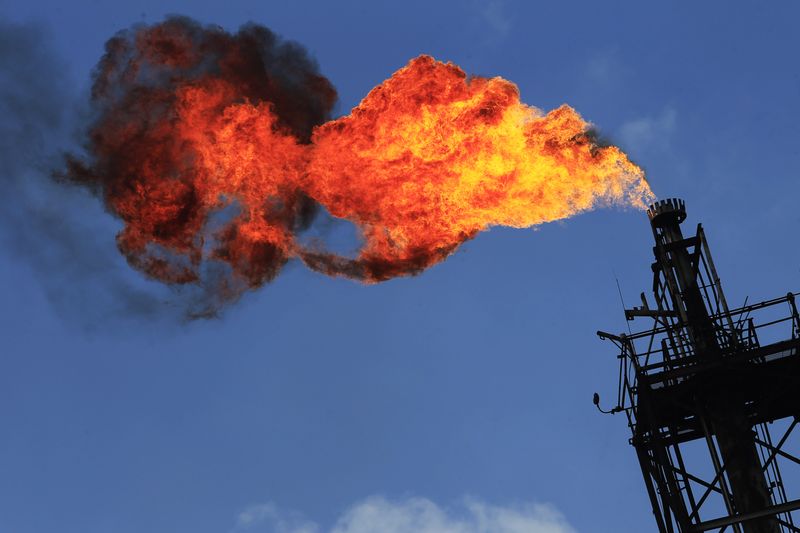Investing.com — An underwhelming storage build has led to an overwhelming in demand prospects for natural gas, resulting in the biggest weekly price gain for the fuel since March.
The on the New York Mercantile Exchange’s Henry Hub settled Friday’s session at $2.6320 per mmBtu, or metric million British thermal units — up 9.9 cents, or almost 4% on the day. This week’s breakout above $2.60 was the first for a Henry Hub front-month in three weeks.
For all of the current week, the contract finished up nearly 38 cents, or 17%, for its biggest weekly percentage gain since the week to March 4, when it climbed 23%.
The rally erupted after the Energy Information Administration, or EIA, reported on Wednesday that for the week ended June 9 fuel rose by 84 billion cubic feet, or bcf, versus expectations for a 96-bcf build.
In the prior week to June 2, the EIA reported a storage increase of 104 bcf. The latest increase contrasted with the 94-bcf injection seen during the same week a year ago, while matching the five-year (2018-2022) weekly average build of 84 bcf.
Analysts acknowledged the rally but said it appeared to be overdone.
“Fundamentals in the gas market appear to be at the relative levels seen at the beginning of the week,” analysts at Houston-based energy markets advisory Gelber & Associates said in a note to their clients on natural gas.
As the United States heads into warmer weather next week, power demand for cooling is expected to increase, especially in the South where temperatures could hit record highs, Gelber’s analysts said.
At the same time, they argued that dry-gas production was back above the key bearish level of 100-bcf per day while LNG feed-gas flows for liquefied natural gas were relatively light at near 11.2 bcf per day.
More importantly, the pattern in the latest rally harked back to a worryingly-weak trend noted a month back, they said.
“This rally appears to be taking on a similar shape as the rally on May 17th,” the Gelber note said. “In that case, a bullish storage injection raised prices and then cratered 2 weeks later, and a similar price movement could be taking effect now.”
Prior to this week’s run-up, gas prices were largely stuck at mid-$2 or lower since mid-March from benign weather that created little need for either heating or cooling. Topping that had been robust production of the fuel, which has steadily added to the glut in gas supply.
A year ago, the benchmark gas contract on the Henry Hub traded at between $7 to $8 per mmBtu, hitting a high of $10 in August on fears of a supply squeeze heightened triggered by the Russia-Ukraine conflict.
Read the full article here











